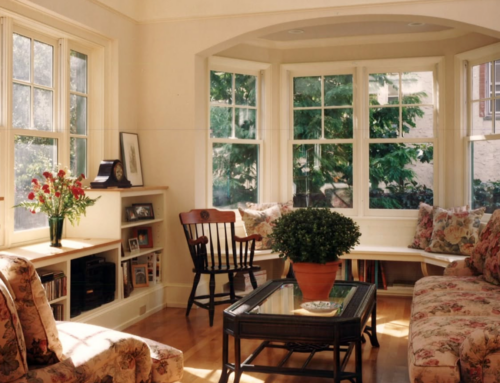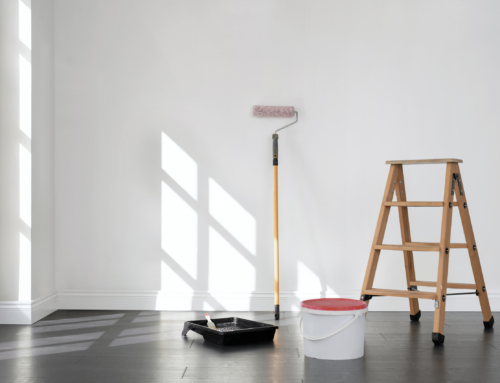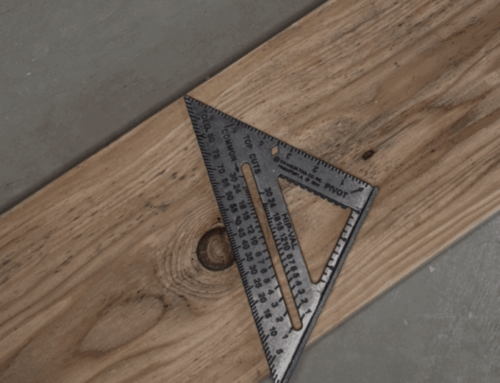Where There’s Smoke, There’s Fire
Last night, I got a text message at an odd hour. I generally let these off-hour calls and messages roll into the next workday. But I took a look at the message anyway, as I was pouring myself a glass of wine. Here is what it said:
“Had a dryer fire @ home…”
Imagine the horror I felt when I saw that message. It took me a few minutes to see it was from one of our carpenters because he had used his wife’s cell phone to send it.
Luckily, that fire was limited to the laundry area, and no one was hurt. Cleaning and re-ducting the dryer properly with rigid metal ducting was a task on his “honey-do list,” and he was going to get to it shortly. He was kicking himself. I could hear it when I spoke to him this morning, and I tried to reassure him.
Our company has worked on some fire projects. Most of the time, these fires start with little things.
Here is a story about a fire that happened in a large row house:
The new owners of a house we had done some smaller projects on in years past were in bed asleep at 2 a.m. The house alarm went off. The husband woke, walked to the key pad to check it, then he checked the house. Nothing. Moments later, when the alarm company called to check on the alarm, he told them he checked the house, and nothing was wrong. He went back to bed. They slept.
This happened three more times throughout the early morning, with the alarm going off, and him checking the house, and the alarm company checking on them. On the fourth alarm, the person at the alarm company told them to get out of the house right away. He argued a bit. The alarm company demanded that he and his wife leave immediately without stopping to collect the cats.
They ran down one flight of stairs in their underwear and t-shirts and out the side door into the cold February night. As they went out that door, the basement fire flashed, blowing the door and wall out behind them. Here is the definition of flash fire
The fire company came. Neighbors came. Everyone was OK. But it was a major fire that gutted the basement and first floor of this 3,500 sf row house. The rest of the house was badly smoke damaged. There was a lot of damage from fighting the fire where water froze on walls and floors. The beautiful 7-foot-tall stained glass windows were all smashed. The place smelled horrible.
This couple spent a year in temporary housing while we renovated and restored their home.
How did it start? The couple had lit a fire in the old fireplace and a tiny ember had fallen down a crack in the hearth to smolder on an old dusty joist. It smoldered there most of the night before the basement flashed.
The lesson of this story? Every house should have smoke alarms. You can buy the battery-operated models for under $20 each. They should be in every bedroom, the kitchen, and the mechanicals room. I had my house and garage hard wired for security, fire and carbon dioxide for about $2,000, but these systems start at around $1,000. As an added bonus, we get a homeowner’s insurance reduction for having this system in place.
Here is a partial fire checklist for every homeowner and renter:
– Have the proper type of fire extinguisher at every open flame location in your house. Kitchen, fireplace, mechanicals room, garage. Extinguishers start at about $20. The type of fire an extinguisher will fight is on the label, and you can find out how to use them at your local fire station. Remember that you have to use them when you are freaking out in an emergency – so practice!
– Make sure your rigid metal ducting and drier vent is vacuumed to remove lint every couple of months. Do not use the plastic covered slinky ducting. Its flammable.
– Have your fireplace or wood stove cleaned and safety checked annually.
– Do not allow grease to build up on your kitchen vent hood. If you have a fire in a pan on the stove, it can ignite grease on the vent fan or in its ducting. The fan should be vented with rigid metal ducting. FYI: a big box of salt will put out a grease fire, as will placing a lid on the flaming pan. Do not use water!
– Do not store flammables, such as paints, fuel, solvents, laundry, or anything else that can burn, near your heater. I keep my garage flammables near the roll up garage door in properly labeled containers.
– Do not wire your house unless you are a licensed, insured electrician. We are working on a project now where we are correcting hazardous wiring that could have started a fire or injured someone years ago. You can see photos of the bad wiring here (link).
– Do not overload outlets or use undersized electrical extension cords. Do not run these cords under rugs.
– Never allow wires to be run within your ducting. This is not code.
– For $90, you can have your electrician safety check your house electrical system for you.
– Do not remove the battery from your fire alarm to put it into your TV remote.
– Kid-proof the house to keep kids way from fire-making materials.
– Have an emergency exit plan and practice it.





